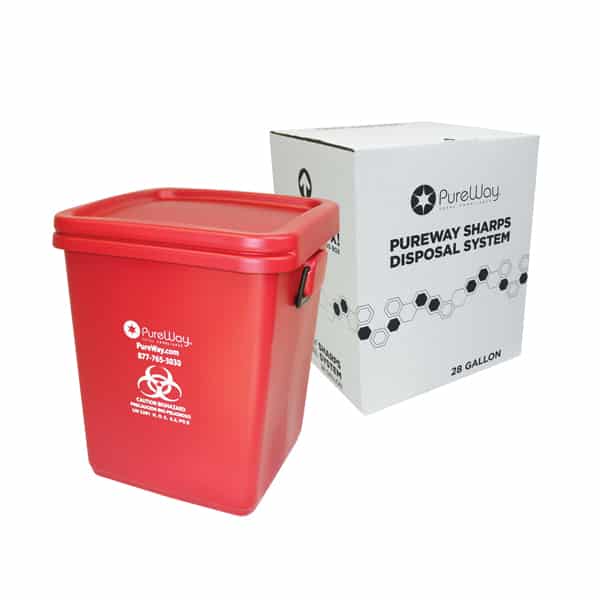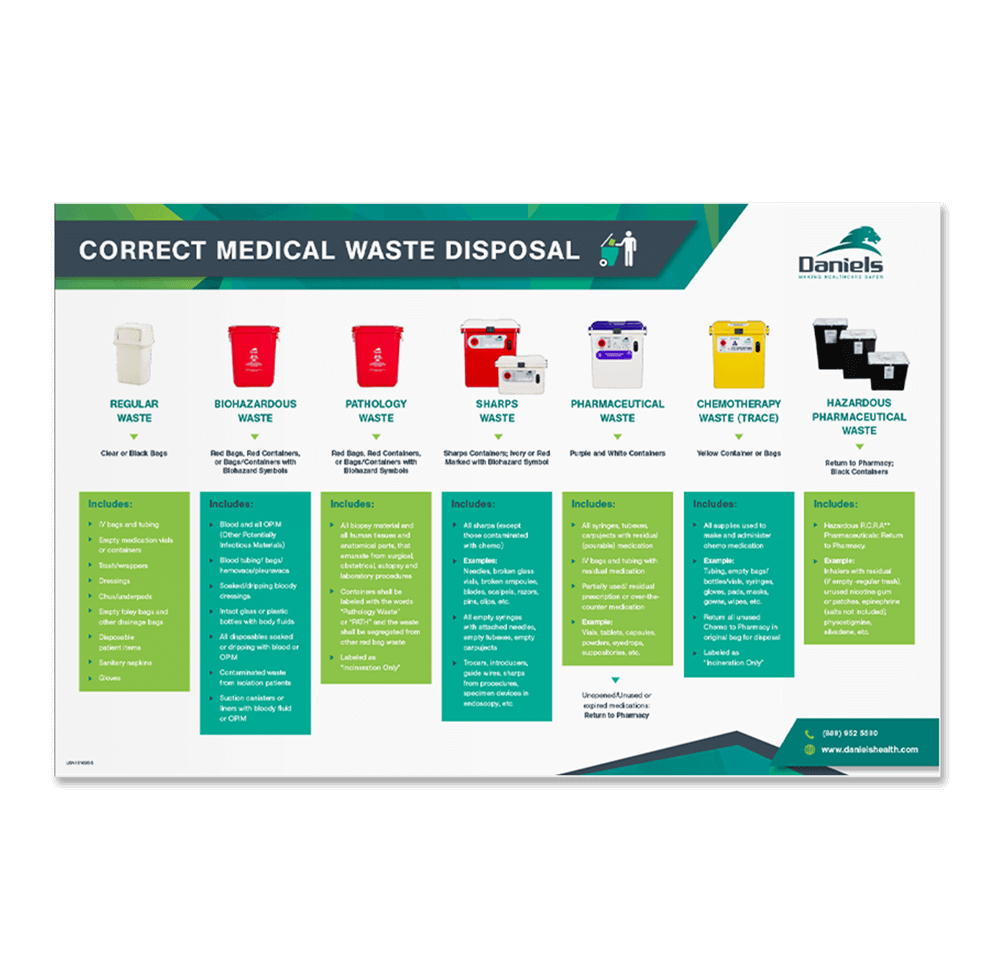Navigating Medical Waste Disposal: Vital Providers for Medical Care Facilities
Health care centers, whether large hospitals or tiny centers, are left with the duty of handling, treating, and disposing of a broad variety of clinical waste streams. Recognizing the vital solutions that sustain medical waste disposal is not simply an issue of compliance however also a basic component in protecting public health and wellness and ecological well-being.
Regulatory Conformity Support
For healthcare centers, making sure regulative conformity assistance is necessary to preserve proper handling and disposal of clinical waste. By partnering with regulatory conformity professionals, healthcare centers can stay updated on evolving laws, reduce risks connected with improper waste disposal, and eventually contribute to a much safer and more lasting environment for all.
Waste Segregation Advice

Health care facilities need to provide clear guidelines and training to team on how to segregate waste properly. This includes separating general waste from harmful products such as sharps, transmittable waste, pharmaceuticals, and chemical waste.
Collection and Transport Services

Correct collection and transport services are essential components of the clinical waste disposal process in medical care centers. These services ensure that unsafe materials are handled securely and in conformity with policies to protect both the setting and public health and wellness. Healthcare centers depend on specialized waste management firms to offer reliable collection and transport services customized to their requirements.
Clinical waste collection involves segregating different types of waste at the factor of generation, making use of color-coded containers or bags to distinguish between general, harmful, pharmaceutical, and various other waste streams. As soon as collected, the waste is carried in committed lorries geared up to deal with harmful materials safely.
Treatment and Disposal Solutions
In the world of clinical waste disposal for medical care facilities, after the essential phase of collection and transport services, the emphasis shifts in the direction of carrying out efficient therapy and disposal options. Treatment remedies commonly involve procedures such as autoclaving, which utilizes vapor under pressure to sterilize the waste.
Disposal options incorporate the final action in the medical waste administration process. Facilities may choose landfill disposal, where treated waste is thoroughly transferred in marked locations. Medical Waste Disposal Services. Medical care centers can pick to make use of waste-to-energy centers, which blaze waste to create power. Reusing and source recuperation are additionally obtaining grip as lasting disposal choices for specific sorts of medical waste materials.
Effective treatment and disposal remedies are extremely important in making sure conformity with guidelines and securing public health and the environment. Health care facilities must meticulously examine and select appropriate methods learn the facts here now that line up with their waste management goals and sustainability initiatives.
Team Training and Education And Learning

To properly handle medical garbage disposal in medical care centers, thorough staff training and education and learning play a vital duty in making sure adherence to regulatory requirements and keeping a safe atmosphere. Correct training gears up personnel with the expertise and skills required to take care of different visit our website sorts of clinical waste, segregate them correctly, and package them safely for disposal. By informing staff members on the risks connected with inappropriate handling of clinical waste, centers can reduce the probability of crashes, contamination, and governing violations.

Final Thought
Finally, healthcare facilities depend on important clinical garbage disposal solutions to make sure governing compliance, correct waste partition, safe collection and transport, reliable treatment and disposal, in addition to team training and education. These services play an essential function in maintaining the health and wellness of both healthcare employees and the public, highlighting the relevance of proper monitoring of medical waste in health care settings.
For healthcare facilities, making sure regulatory compliance support is necessary to maintain proper handling and disposal of medical waste. Waste segregation involves categorizing different kinds of medical waste to make certain ideal handling, therapy, and disposal. This consists of separating general waste from hazardous products such as sharps, transmittable waste, drugs, and chemical waste.Medical waste collection involves setting apart various from this source kinds of waste at the point of generation, using color-coded bins or bags to identify in between general, dangerous, pharmaceutical, and other waste streams.In the world of medical waste disposal for health care facilities, after the essential phase of collection and transportation services, the emphasis shifts in the direction of executing effective therapy and disposal options.